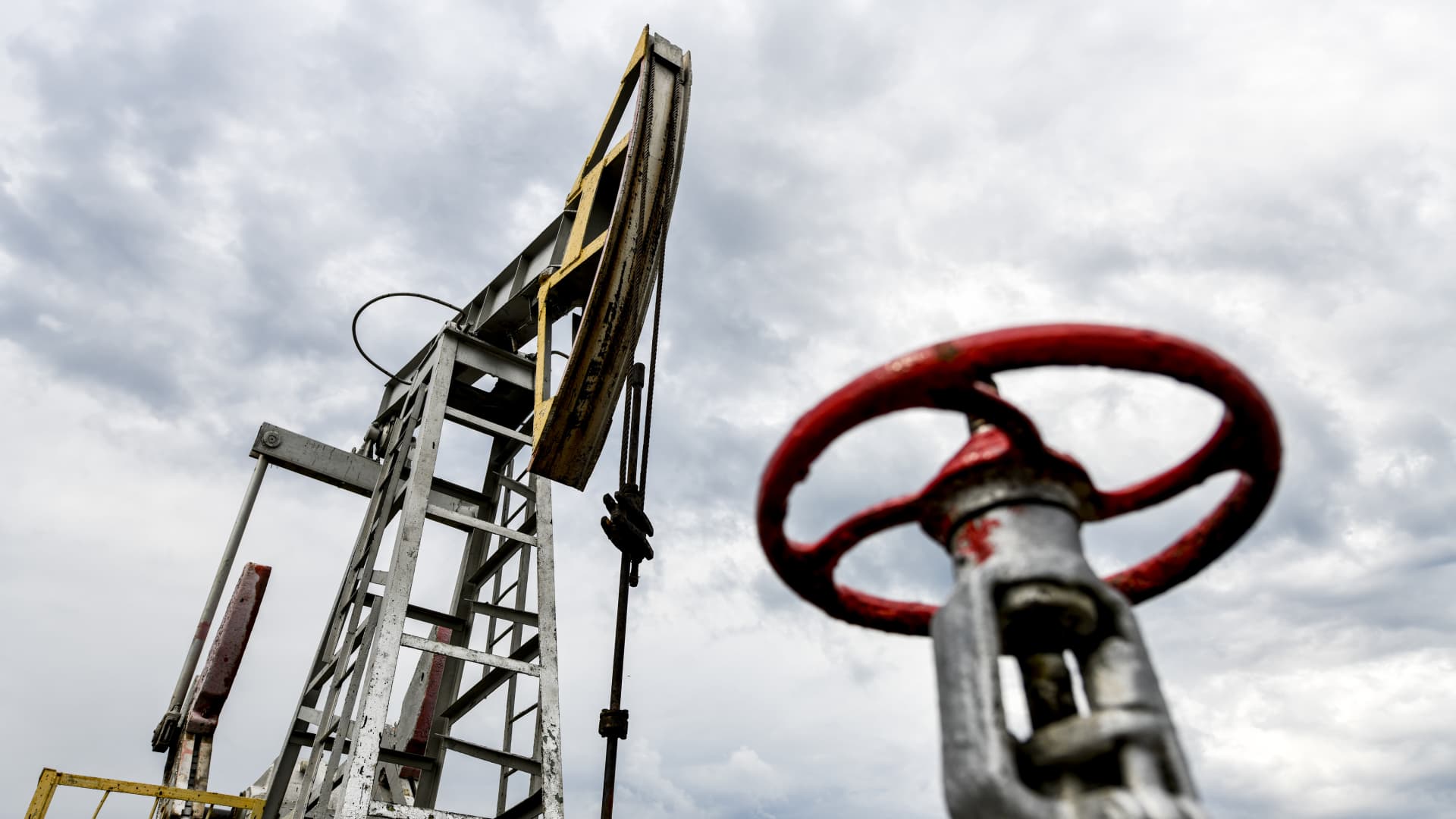Oil prices on Friday rose more than 4% after the U.S. tightened sanctions against Russian crude exports, exacerbating supply concerns in an already tightly balanced energy market.
International benchmark Brent crude futures with December expiry traded 4.2% higher at $89.55 per barrel at around 8:15 a.m. ET, while front-month November U.S. West Texas Intermediate crude futures rose 4.2% to trade at $86.38 per barrel.
The move back toward $90 a barrel comes after the U.S. on Thursday imposed sanctions on two shipping companies that it said violated the G7’s oil price cap, a mechanism designed to retain a reliable supply of Russian flows in the market while curbing the Kremlin’s war chest.
“This action underscores the Treasury Department’s commitment with its international partners to responsibly reducing Russian government oil profits and constraining the Russian war machine,” the U.S. Department of the Treasury said in a statement.
The G7, Australia and the EU implemented a $60-per-barrel price cap on Russian oil on Dec. 5 last year. It came alongside a move by the EU and U.K. to impose a ban on the seaborne imports of Russian crude oil.
Together, the measures were thought at that time to reflect by far the most significant step to curtail the fossil fuel export revenue that is funding Russia’s war in Ukraine.
On Thursday, the U.S. Department of the Treasury’s Office of Foreign Assets Control (OFAC) said it was imposing sanctions on two owners of tankers carrying Russian oil priced above the price cap: one in Turkey and one in the United Arab Emirates.
The YasaGolden Bosphorus tanker, which is owned by Turkey-based Ice Pearl Navigation Corp, was said to have carried crude oil priced above $80 a barrel after the price cap took effect.
Meanwhile, OFAC said the SCF Primorye, which is owned by UAE-based Lumber Marine SA, carried Russian oil priced above $75 a barrel from a port in Russia after the price cap mechanism came in.
The move to clamp down on Russian oil sales “demonstrates our continued commitment to reduce Russia’s resources for its war against Ukraine and to enforce the price cap,” said Deputy Secretary of the Treasury Wally Adeyemo.
“We remain committed to implementing a price cap policy that has two goals: reducing the oil profits upon which Russia relies to wage its unjust war against Ukraine and keeping global energy markets stable and well-supplied despite turbulence caused by Russia’s unprovoked invasion of Ukraine,” Adeyemo added.
‘Fraught with uncertainty’
Market participants are also closely monitoring the fallout from the escalating Israel-Hamas conflict, which has ratcheted up concerns that the fighting may affect regional energy production. The Middle East accounts for more than one third of global seaborne trade.
The International Energy Agency on Thursday described market conditions as “fraught with uncertainty” but said the Israel-Hamas war had not yet had a direct impact on physical supply.
The IEA sought to assuage market concerns by saying it stands ready to act to ensure markets remain “adequately supplied” in the event of an abrupt supply shortage.
The energy agency’s response includes member countries releasing emergency stocks and/or implementing demand restraint measures.
Israel is not a major oil producer and no major oil infrastructure runs close to the Gaza Strip.
Read the full article here







